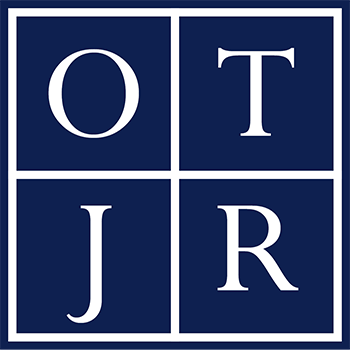The Politics of Violence and Accountability in Kenya
On 28 February 2008, PNU, the party of incumbent Kenyan president Mwai Kibaki, and ODM, the opposition party led by Raila Odinga, signed an agreement for a coalition government. This agreement was brokered by the Panel of Eminent African Personalities under the leadership of Kofi Annan, and aimed at bringing an end to the violence that broke out following the contested 2007 elections. Two of the four commissions established under the agreement to address long-term issues have implications for transitional justice – the Truth, Justice, and Reconciliation Commission (TJRC- gazetted on 9 May 2008), and the Commission of Inquiry into Post-Election Violence (the Waki Commission, which submitted its report on 15-17 October 2008, recommending prosecutions and institutional reform). Following insufficient progress in the implementation of the recommendations of the Waki Commission, the names of suspects behind the post-election violence were handed to the International Criminal Court (ICC).
The handover of these names opens an uncertain chapter in Kenya’s history of political violence. This development has generated a vibrant debate among Kenyans: What should accountable politics look like? What is the role of transitional justice in getting us there? Under what conditions might the current turn of events contribute to the country’s long term stability?
Over the coming months, this Oxford Transitional Justice Research forum will explore the social, political, and legal issues that arise from the Kenya situation, asking what these developments mean for Kenya, the ICC, and the wider realm of transitional justice. It offers a space in which concerned Kenyans can come together with a range of experts, scholars, practitioners, and commentators to discuss fundamental questions about how we got here, and the strategies necessary to move the country forward.
Further discussion on Kenya’s politics of violence and accountability can be found on the African Arguments website.
Series Papers
1. The politics of violence and accountability in Kenya
Thu, 16 Jul 2009 by Lydiah Kemunto Bosire
Introduction to the debate: the politics of violence and accountability in Kenya.
2. The normalization of violence
Fri, 17 Jul 2009 by Daniel Branch
Accounts of violence in Kenya that focus on elites must also interrogate the agency of ordinary Kenyans.
3. DIY Violence is Corrosive of Nationhood
Fri, 17 Jul 2009 by Daniel Waweru
Given the permeation of the majimboist ideology outside the political class, reform and accountability are incompatible.
4. Kenya Post-2008: The calm before a storm?
Fri, 17 Jul 2009 by Gabrielle Lynch
To move forward, Kenya must focus on the presidency and its zero-sum politics, impunity, the informalization of violence, and the politics of ethnicity.
5. The Spectre of Impunity and the Politics of the Special Tribunal in Kenya
Fri, 17 Jul 2009 by Tim Murithi
Annan handed over the Waki envelope, believing that Kenya is in a high risk category in the framework of the Office of the Special Advisor of the UN Secretary General for the Prevention of Genocide.
6. Watu Wazima: A gender analysis of forced male circumcisions during Kenya’s post-election violence
Fri, 17 Jul 2009 by Wanjiru Kamau-Rutenberg
Forced circumcision of Luo men by Mungiki was facilitated by their feminization in the political discourse.
7. Kenya: Our Possible Futures; Our Choices
Fri, 17 Jul 2009 by Sisule Musungu
Kenya must avoid the status quo, as it can only result in fractured decline.
8. Accountability Debate in Kenya Unfolds in a Near Policy Vacuum and Ethnic Tension
Sun, 20 Jan 2013 by Godfrey M Musila
Mr. Godfrey Musila's essay explains how the power struggle within the governing coalition polarizes and ethnicizes justice, leading to Kenya's incoherent transitional justice agenda.
9. Truth, Justice, Reconciliation, and… Land Tenure Reform?
Sun, 20 Jan 2013 by Chris Huggins
Land reform is central in the economic mandate of Kenya's Truth, Justice, and Reconciliation Commission (TJRC).
10. Special Tribunal Enactment: Why Cabinet, MPs, are Misleading Kenyans
Fri, 31 Jul 2009 by Ndung’u Wainaina and Pamela Chepng’etich
Kenya needs a Special Tribunal.
11. Incremental Judicial Reforms in Kenya
Sun, 02 Aug 2009 by Charles A. Khamala
Recent resolutions by the Law Society of Kenya were essential in the effort to strengthen the Kenyan judiciary.
12. Saving international justice in Africa
Wed, 05 Aug 2009 by Chidi Anselm Odinkalu
The debate on international criminal trials in the African context has degenerated to a contest between 'supposed imperialists and alleged impunity apologists', neglecting important political concerns.
13. Decreeing and establishing a constitutional order: challenges facing Kenya
Mon, 10 Aug 2009 by Yash Ghai
In a context where only violation of the constitution make political control possible, the absence of ethical and moral standards in politics mean that even the most robust constitutional text will 'not make a difference' in Kenya.
14. A radical proposal to deal with our prejudices
Fri, 21 Aug 2009 by Dr. Lukoye Atwoli
A radical proposal for Kenyans who long for ethnic homogeneity.
15. Misconceptions I – The ICC and the Truth, Justice and Reconciliation Commission
Fri, 21 Aug 2009 by Lydiah Kemunto Bosire
Why the establishment of Kenya's Truth, Justice and Reconciliation Commission (TJRC) does not affect the admissibility of the Kenyan situation before the ICC.
